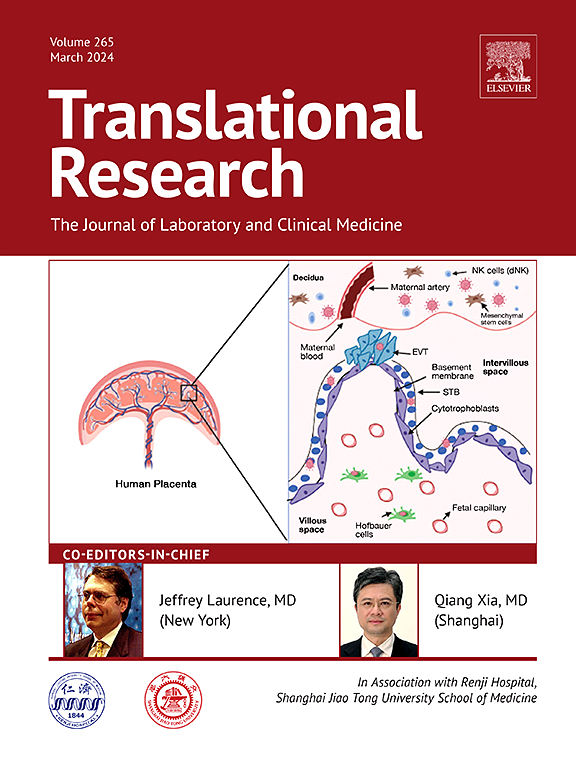Delivery of thermogenic genes to metabolic tissues: Effects on body weight and glucose tolerance
IF 5.9
2区 医学
Q1 MEDICAL LABORATORY TECHNOLOGY
引用次数: 0
Abstract
Adaptive thermogenesis, particularly via the β3-adrenergic receptor (ADRB3)–protein kinase A catalytic subunit α (PKA Cα)–uncoupling protein 1 (UCP1) pathway, promotes energy expenditure and contributes to metabolic homeostasis, thereby establishing this pathway as a promising therapeutic target for metabolic disorders associated with excessive energy intake. In this study, we aimed to evaluate the therapeutic potential of adeno-associated virus (AAV)-mediated gene therapy targeting thermogenic pathways in metabolic tissues for the treatment of obesity-related dysfunctions. We demonstrated that adipocyte-specific overexpression of UCP1 improved glucose tolerance. Similarly, ADRB3 overexpression significantly enhanced glucose tolerance. Furthermore, ectopic expression of UCP1 in hepatocytes and myofibers also led to improved glucose tolerance. These findings highlight the potential of AAV-mediated gene therapy targeting the ADRB3–PKA Cα–UCP1 axis as a promising strategy for the treatment of obesity-associated metabolic disorders.
产热基因向代谢组织的传递:对体重和葡萄糖耐量的影响。
适应性产热,特别是通过β3-肾上腺素能受体(ADRB3)-蛋白激酶A催化亚基α (PKA Cα)-解偶联蛋白1 (UCP1)途径,促进能量消耗并有助于代谢稳态,从而将该途径建立为与过度能量摄入相关的代谢紊乱的有希望的治疗靶点。在这项研究中,我们旨在评估腺相关病毒(AAV)介导的靶向代谢组织产热途径的基因治疗治疗肥胖相关功能障碍的潜力。我们证明了脂肪细胞特异性的UCP1过表达改善了葡萄糖耐量。同样,ADRB3过表达显著提高葡萄糖耐量。此外,UCP1在肝细胞和肌纤维中的异位表达也导致葡萄糖耐量的改善。这些发现强调了aav介导的靶向ADRB3-PKA Cα-UCP1轴的基因治疗作为治疗肥胖相关代谢紊乱的有希望的策略的潜力。
本文章由计算机程序翻译,如有差异,请以英文原文为准。
求助全文
约1分钟内获得全文
求助全文
来源期刊

Translational Research
医学-医学:内科
CiteScore
15.70
自引率
0.00%
发文量
195
审稿时长
14 days
期刊介绍:
Translational Research (formerly The Journal of Laboratory and Clinical Medicine) delivers original investigations in the broad fields of laboratory, clinical, and public health research. Published monthly since 1915, it keeps readers up-to-date on significant biomedical research from all subspecialties of medicine.
 求助内容:
求助内容: 应助结果提醒方式:
应助结果提醒方式:


